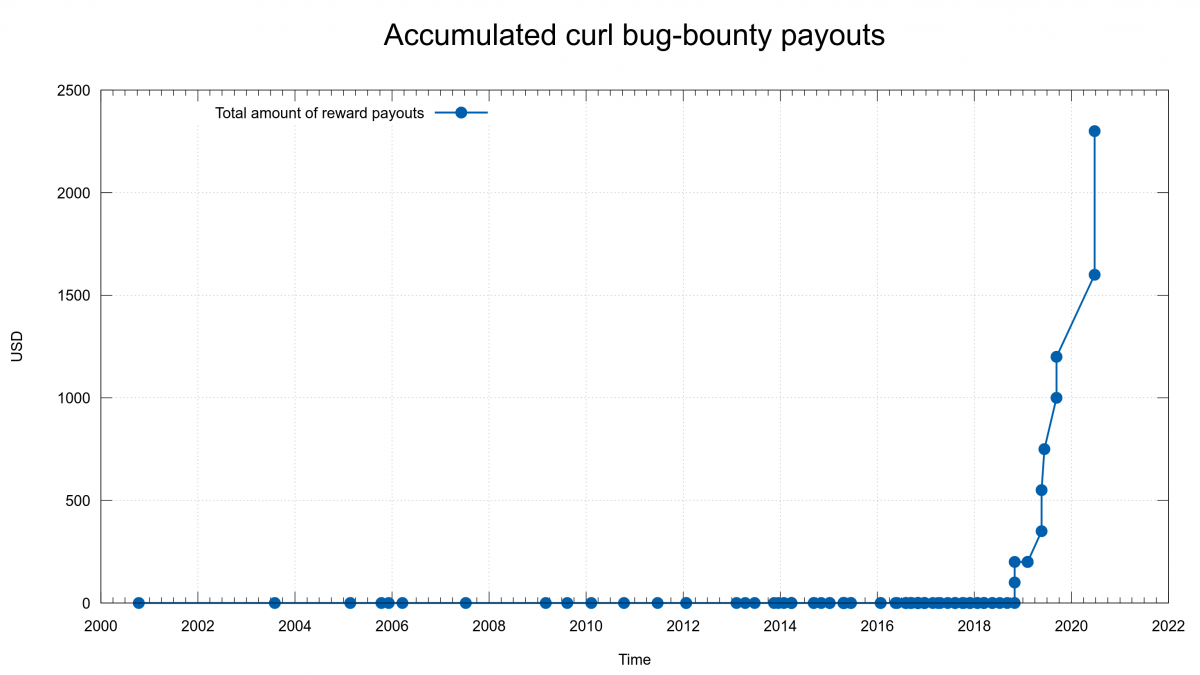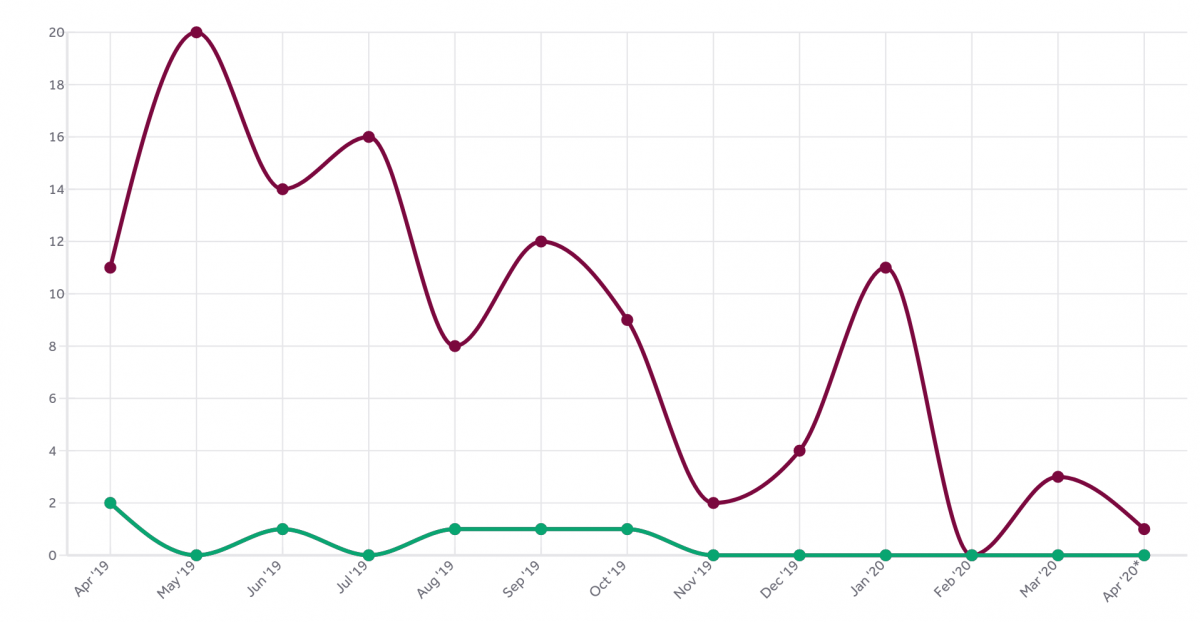I spent a lot of time and effort digging up the numbers and facts for this post!
Lots of people keep referring to the awesome summary put together by a friendly pseudonymous “Tim” which says that “53 out of 95” (55.7%) security flaws in curl could’ve been prevented if curl had been written in Rust. This is usually in regards to discussions around how insecure C is and what to do about it. I’ve blogged about this topic before, but things change, the world changes and my own view on these matters keep getting refined.
I did my own count: how many of the current 98 published security problems in curl are related to it being written in C?
Possibly due to the slightly different question, possibly because I’ve categorized one or two vulnerabilities differently, possibly because I’m biased as heck, but my count end up at:
51 out of 98 security vulnerabilities are due to C mistakes
That’s still 52%. (you can inspect my analysis and submit issues/pull-requests against the vuln.pm file) and yes, 51 flaws that could’ve been avoided if curl had been written in a memory safe language. This contradicts what I’ve said in the past, but I will also show you below that the numbers have changed and I still was right back then!
Let me also already now say that if you check out the curl security section, you will find very detailed descriptions of all vulnerabilities. Using those, you can draw your own conclusions and also easily write your own blog posts on this topic!
This post is not meant as a discussion around how we can rewrite C code into other languages to avoid these problems. This is an introspection of the C related vulnerabilities in curl. curl will not be rewritten but will continue to support backends written in other languages.
It seems hard to draw hard or definite conclusions based on the CVEs and C mistakes in curl’s history due to the relatively small amounts to analyze. I’m not convinced this is data enough to actually spot real trends, but might be mostly random coincidences.
98 flaws out of 6,682
The curl changelog counts a total of 6,682 bug-fixes at the time of this writing. It makes the share of all vulnerabilities to be 1.46% of all known curl bugs fixed through curl’s entire life-time, starting in March 1998.
Looking at recent curl development: the last three years. Since January 1st 2018, we’ve fixed 2,311 bugs and reported 26 vulnerabilities. Out of those 26 vulnerabilities, 18 (69%) were due to C mistakes. 18 out of 2,311 is 0.78% of the bug-fixes.
We’ve not reported a single C-based vulnerability in curl since September 2019, but six others. And fixed over a thousand other bugs. (There’s another vulnerability pending announcement, a 99th one, to become public on March 31, but that is also not a C mistake.)
This is not due to lack of trying. We’re one of the few small open source projects that pays several hundred dollars for any reported and confirmed security flaw since a few years back.
The share of C based security issues in curl is an extremely small fraction of the grand total of bugs. The security flaws are however of course the most fatal and serious ones – as all bugs are certainly not equal.
But also: not all vulnerabilities are equal. Very few curl vulnerabilities have had a severity level over medium and none has been marked critical.
Unfortunately we don’t have “severity” noted for very many many of the past vulnerabilities, as we only started that practice in 2019 and I’ve spent time and effort to backtrack and fill them in for the 2018 ones, but it’s a tedious job and I probably will not update the remainder soon, if at all.
51 flaws due to C
Let’s dive in to see how they look.
Here’s a little pie chart with the five different C mistake categories that have caused the 51 vulnerabilities. The categories here are entirely my own. No surprises here really. The two by far most common C mistakes that caused vulnerabilities are reading or writing outside a buffer.
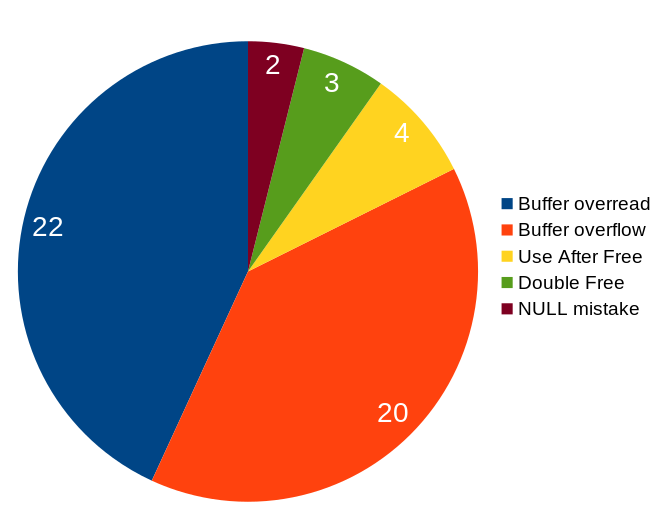
Buffer overread – reading outside the buffer size/boundary. Very often due to a previous integer overflow.
Buffer overflow – code wrote more data into a buffer than it was allocated to hold.
Use after free – code used a memory area that had already been freed.
Double free – freeing a memory pointer that had already been freed.
NULL mistakes – NULL pointer dereference and NUL byte mistake.
Addressing the causes
I’ve previously described a bunch of the counter-measures we’ve done in the project to combat some of the most common mistakes we’ve done. We continue to enforce those rules in the project.
Two of the main methods we’ve introduced that are mentioned in that post, are that we have A) created a generic dynamic buffer system in curl that we try to use everywhere now, to avoid new code that handles buffers, and B) we enforce length restrictions on virtually all input strings – to avoid risking integer overflows.
Areas
When I did the tedious job of re-analyzing every single security vulnerability anyway, I also assigned an “area” to each existing curl CVE. Which area of curl in which the problem originated or belonged. If we look at where the C related issues were found, can we spot a pattern? I think not.
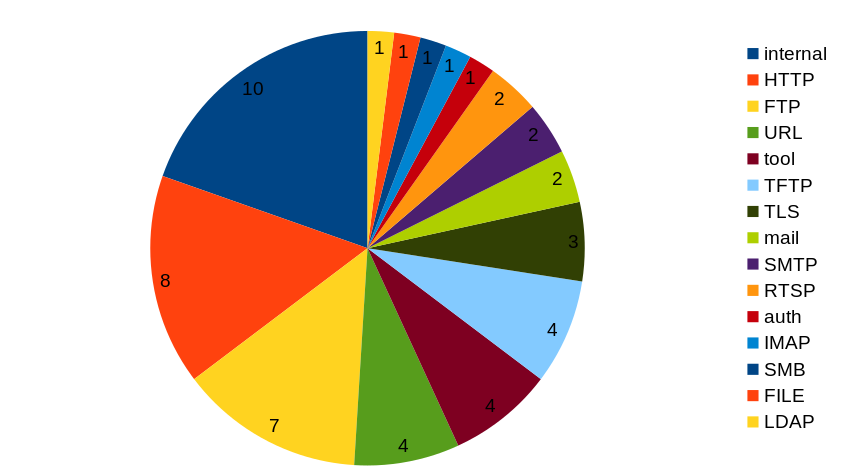
“internal” being the number one area, which means that was in generic code that affected multiple protocols or in several cases even entirely protocol independent.
HTTP was the second largest area, but that might just also reflect the fact that it is the by far most commonly used protocol in curl – and there is probably the most amount of protocol-specific code for this protocol. And there were a total of 21 vulnerabilities reported in that area, and 8 out of 21 is 38% C mistakes – way below the total average.
Otherwise I think we can conclude that the mistakes were distributed all over, rather nondiscriminatory…
C mistake history
As curl is an old project now and we have a long history to look back at, we can see how we have done in this regard throughout history. I think it shows quite clearly that age hasn’t prevented C related mistakes to slip in. Even if we are experienced C programmers and aged developers, we still let such flaws slip in. Or at least we don’t find old such mistakes that went in a long time ago – as the reported vulnerabilities in the project have usually been present in the source code for many years at the time of the finding.
The fact is that we only started to take proper and serious counter-measures against such mistakes in the last few years and while the graph below shows that we’ve improved recently, I don’t think we yet have enough data to show that this is a true trend and not just a happenstance or a temporary fluke.
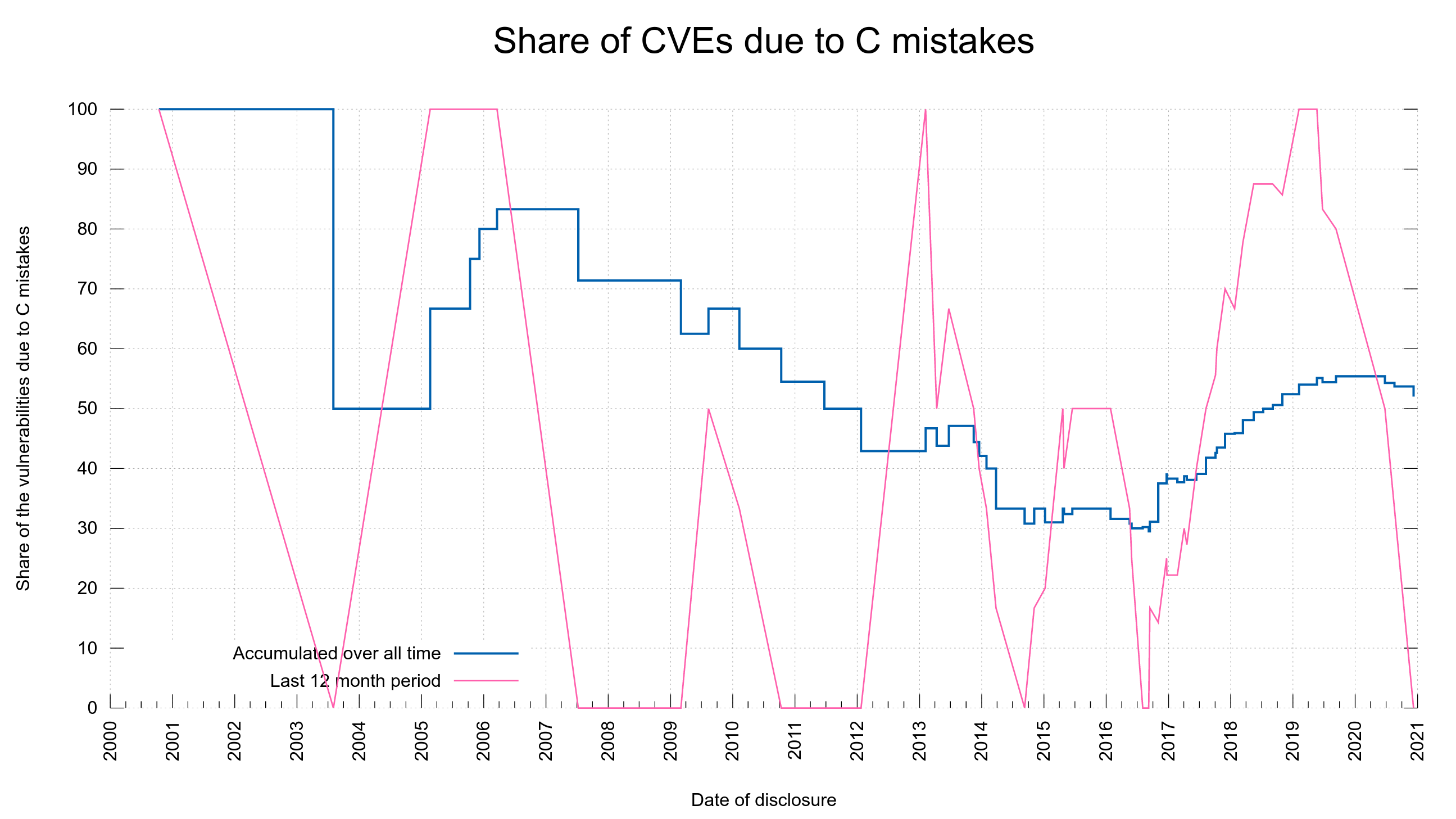
The blue line in the graph shows how big the accumulated share of all security vulnerabilities has been due to C mistakes over time. It shows we went below 50% totally in 2012, only to go above 50% again in 2018 and we haven’t come down below that again…
The red line shows the percentage share the last twelve months at that point. It illustrates that we have had several series of vulnerabilities reported over the years that were all C mistakes, and it has happened rather recently too. During the period one year back from the very last reported vulnerability, we did not have a single C mistake among them.
Finding the flaws takes a long time
C mistakes might be easier to find and detect in source code. valgrind, fuzzing, static code analyzers and sanitizers can find them. Logical problems cannot as easily be detected using tools.
I decided to check if this seems to be the case in curl and if it is true, then C mistakes should’ve lingered in the code for a shorter time until found than other mistakes.
I had a script go through the 98 existing vulnerabilities and calculating the average time the flaws were present in the code until reported, splitting out the C mistake ones from the ones not caused by C mistakes. It revealed a (small) difference:
C mistake vulnerabilities are found on average at 80% of the time other mistakes need to get found. Or put the other way around: mistakes that were not C mistakes took 25% longer to get reported – on average. I’m not convinced the difference is very significant. C mistakes are still shipped in code for 2,421 days – on average – until reported. Looking over the last 10 C mistake vulnerabilities, the average is slightly lower at 2,108 days (76% of the time the 10 most recent non C mistakes were found). Non C mistakes take 3,030 days to get reported on average.
Reproducibility
All facts I claim and provide in this blog post can be double-checked and verified using available public data and freely available scripts.











